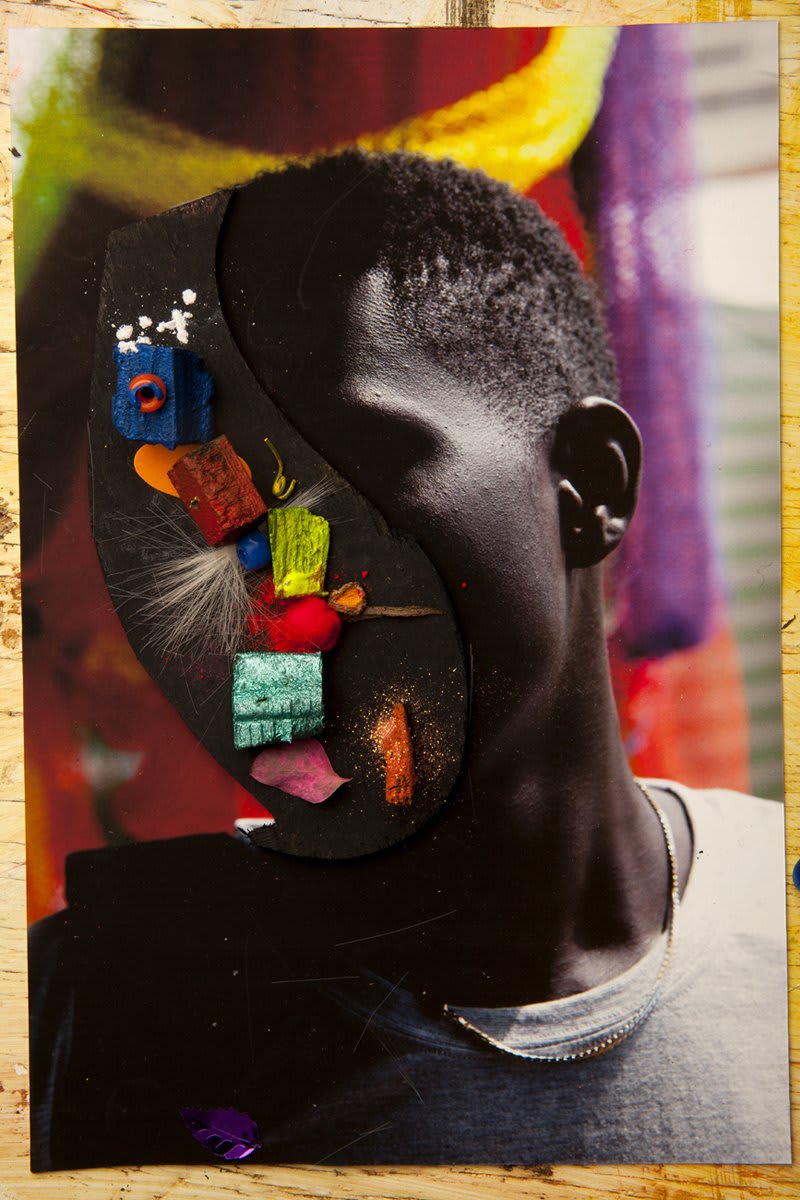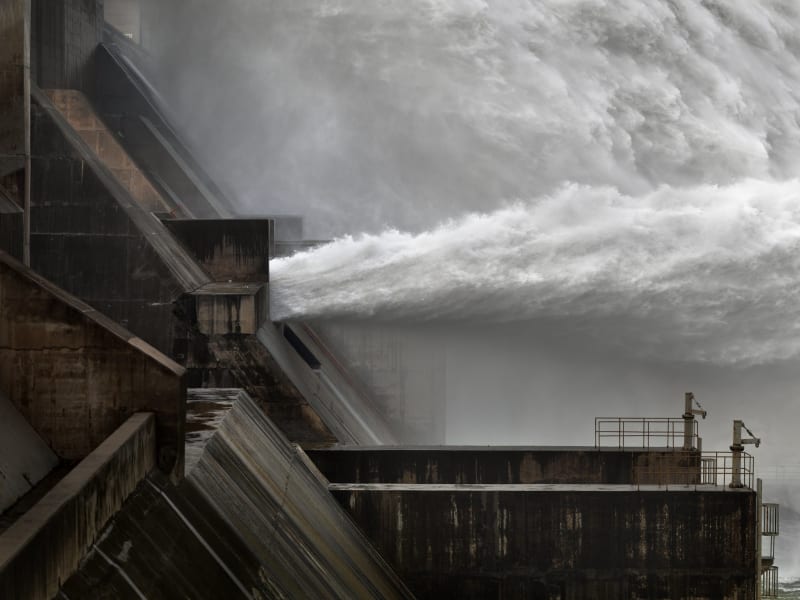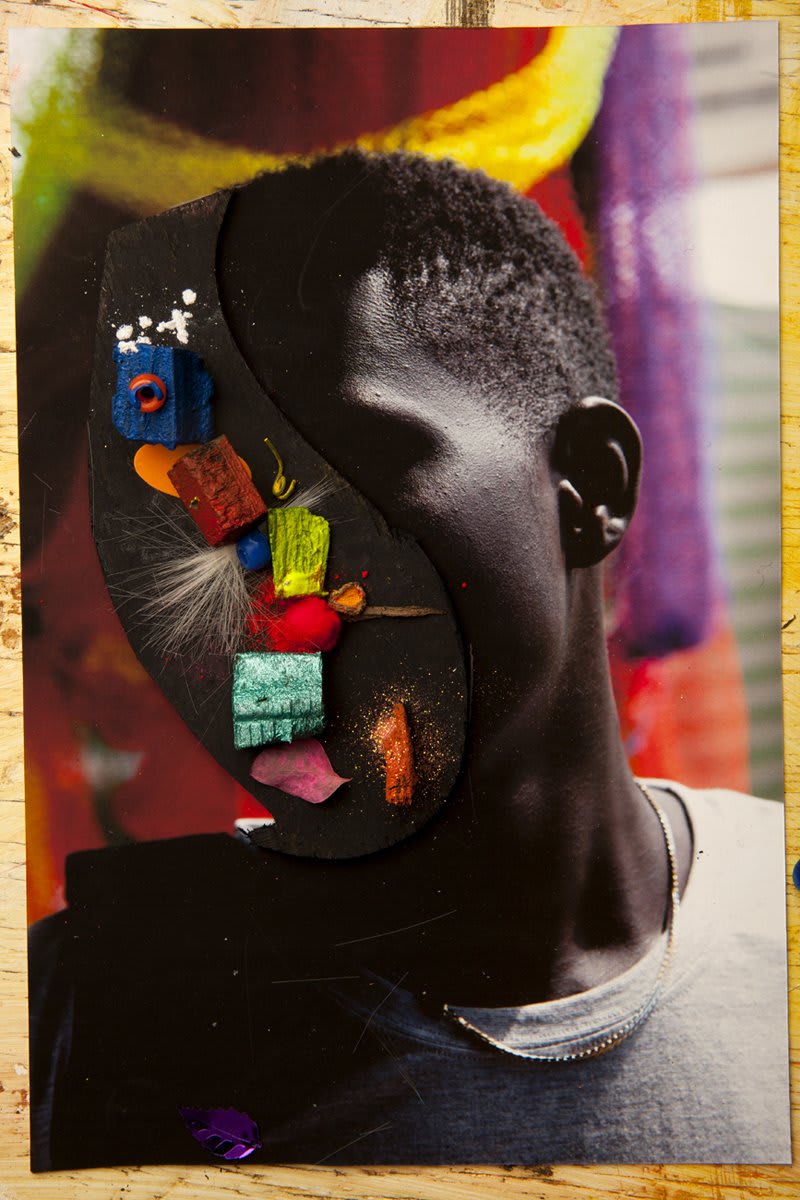
Unseen
Overview
Edward Burtynsky’s most recent series ‘Water’ follows previous projects such as Oil, China and Quarries in its exploration of a broad theme through a series of connected chapters or locations. With Water, we are often presented with an aerial or 'birds eye' perspective, creating a unique abstraction and painterly quality in the work. Burtynsky chronicles how human interference is depleting the earth's most precious resource, leading to devastated landscapes that are polluted, manipulated and exhausted. It is the most recent instalment in the artist's on-going investigation into the continually compromised environment.
Esther Teichmann's on-going body of work ‘Mythologies’ uses still and moving image, collage and painting to create alternate worlds, which blur autobiography and fiction. Central to the work lies an exploration of the origins of fantasy and desire and how these are bound to experiences of loss and representation. Working with intimate subjects, both filmic works and photographs of turned away bodies and mythical landscapes work with the relationships between images, and the narratives these juxtapositions create. Ideas of an impossible return, of grief and a sense of inherited home-sickness are returned to repeatedly within primordial spaces of enchantment.
Mona Kuhn was born in São Paulo, Brazil, in 1969, of German descent. She received her BA from The Ohio State University, before furthering her studies at the San Francisco Art Institute in 1996 and then at The Getty Research Institute, Los Angeles in 1999. Mona Kuhn's work is figurative. She is interested in redefining ways of looking at the body, as a residence to ourselves. Her work has been exhibited, and is included in public and private collections, internationally and in the United States.
Tom Lovelace works across photography, sculpture and performance, where concept prevails over form and his methodology is one of deconstructing conventions of a conceptual understanding of 'discipline'. Primarily using the industrial landscape as his sourcing ground, he seeks to manufacture an ephemeral subject, creating environments and interventions that exist solely for the camera.
Born in Venice 1980. Lorenzo Vitturi lives and works between London and Milan. After graduating in photography and design at IED in Rome (2004) he has been on a two years residency at Fabrica, the Benetton centre for research in communication (2005-2007). Formerly a cinema set painter, Vitturi has brought this experience into his photography practice, which revolves around site-specific interventions in accurately researched locations. He uses photography to set the scenes of thoughts and ideas through the manipulation of space, following his projects from creative idea to realization.
Works






